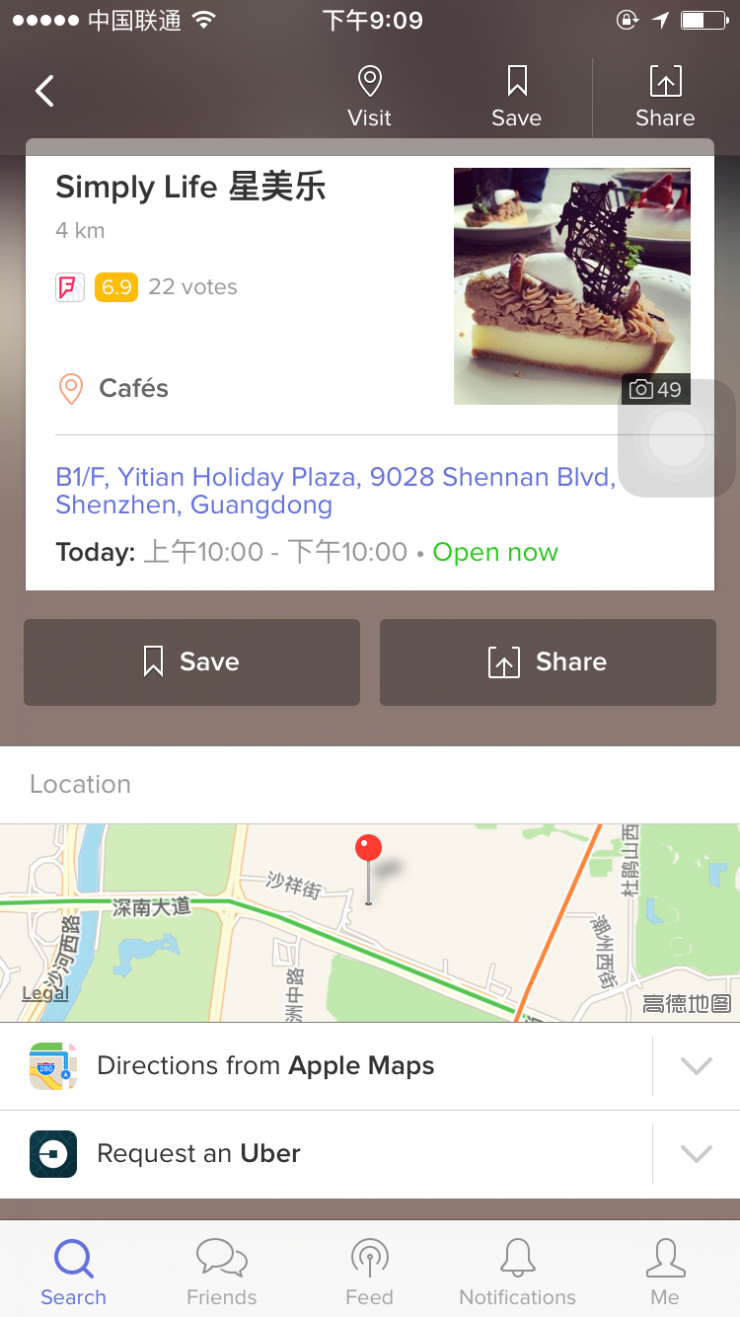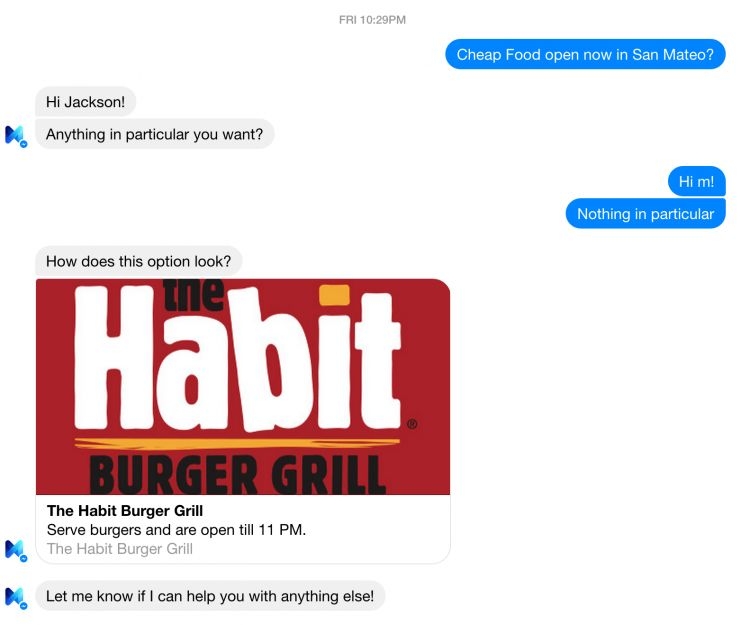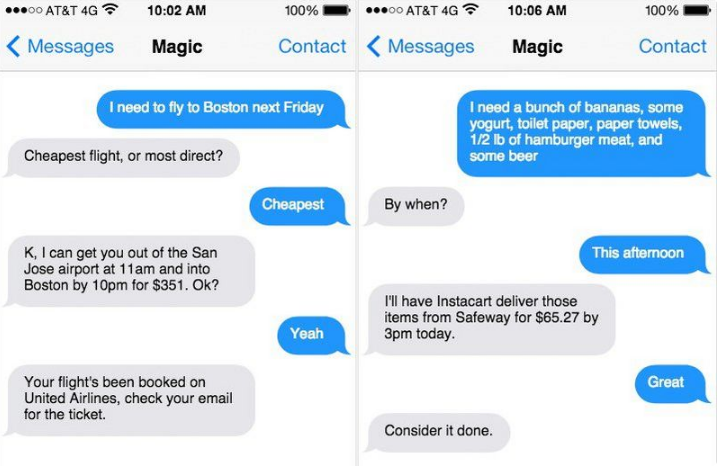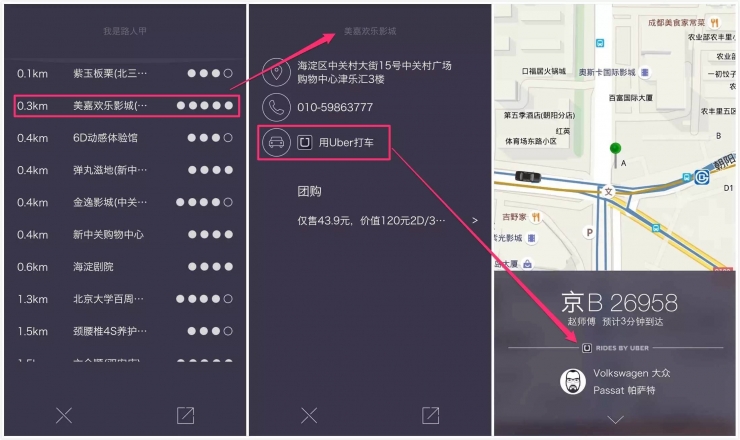
According to The Information, a technology website, Snapchat plans to spend more than US$110 million (of which 75% is paid in stock and the remaining 25% is paid in cash) to acquire search and recommend applications Vurb.
 "Next-generation search engine"Vurb has been unanimously referred to as the next generation search engine, which improves the mobile search experience by providing users with more relevant information.
Unlike conventional search engines that focus on large and wide-ranging information, Vurb has integrated the more commonly used services of eating, drinking, housing, transportation, information, entertainment, and other services in 2014. Its greatest feature is that it optimizes the relevant search results and presents them to a page that is closer to the user's search and usage scenarios. Vurb collaborates with third-party applications from Yelp, Rotten Tomatoes, Fandango, and Uber, such as searching for nearby restaurants using “Vurbâ€. It will show all nearby restaurants on one page. After clicking on relevant restaurants, Vurb can not only show Yelp's review information, the bottom of the page can also directly use the map navigation and Uber/Lyft taxi to the restaurant's function.

Similarly, using Vurb to search for movies, users can see related trailers, show times, movie reviews, Netflix links, and more in search results. If users have spending and pastime needs, there is no need to jump across multiple apps, and our previous usage is to query multiple apps. Vurb integrated services can even recommend differentiated information based on time of day, weather, and location.
 Tencent invests in Vurb, adding social featuresIn 2015, Tencent invested in Vurb. After an interesting phenomenon, Vurb timely launched an online chat function to further seize the traffic. Vurb's instant messaging is mainly a search service. Users can send search results lists such as eating, watching movies and other life service information in the form of a card to Vurb's own social networking platform friends, as well as Facebook, Twitter friends.
Here we first to restore a scene, many times, users and friends about dinner, first on the WeChat to discuss good, and then in the public comment on the link sent to each other, and then open the map or a taxi application to the restaurant, the entire process in three Completed in the application, need to switch between different apps. Using Vurb can be done in one application.
Vurb wants to integrate all common apps on their mobile phones into their own products. Using common search functions to guide users to use chat functions, and then increasing the search service stickiness through chat functions, is an interactive product logic. WeChat is just the opposite. It uses social services to serve people's lives and directs traffic. It embeds many merchant applications such as JD.com and Didi's travel in a secondary portal, but overall, the conversion rate is low. Judging from this information, Tencent's investment in Vurb has to wait and see if Vurb can successfully connect living services with social networking.
 Why sell at Snapchat?In terms of the entire function, Vurb simplifies the process of people requesting services, so that social and life services are connected in series. It also has the opportunity to become a mobile portal. Why is Vurb, which has been high hopes, sold to Snapchat at a low price?
The giants are seated and new search portals appear
In August of last year, Facebook began testing a virtual assistant based on Messenger M, which was a response to Facebook's competition with Siri, Google Now, and Microsoft's Cortana. However, unlike Siri, it is able to perform a wider task. Users just need to send a text message command to M as usual chat. It can help users purchase goods, send gifts, order restaurants, arrange travel and Dating and so on. The search function is presented as a dialogue, and the interaction effect is more friendly. And because M is based on Facebook Messenger, it's easy to connect M with social features. Prior to this, Lei Feng network (search "Lei Feng network" public concern) had done Facebook M test Facebook motivated virtual assistant "M", what is the experience?

This year, Facebook released the Messenger chat bot to further integrate social + virtual assistant search. From here we can find that Facebook's functionality has a certain similarity with Vurb.
The search function in the form of dialogue has been recognized by most people in the experience. In the case of Magic , which was published on the United States as an example, the user can send the desired service request to Magic in the form of a text as long as the law allows it. Everything else will help you get it. Magic uses artificial + intelligent methods to provide services for users. It uses natural language processing technology to solve common service needs, and the artificial team behind it solves the problems that the machine is unable to solve. The same is true for similar products in China. Both are very much favored by the capital market.

In contrast, Vurb's search methods are now slightly old.
At the same time, WeChat mentioned that it will launch an application number this year. According to professional analysis, it will turn the company's public number into a WeChat version of the App Store. When users use WeChat chat, they can call any of the App's services at any time. Appification."
The same amount of competitors
One of Vurb's important functions is that when users search for restaurants and movie theaters, they can access third-party map navigation and taxi services to their destinations at the bottom of the page. They are intended to allow users to satisfy multiple continuity requirements within the same scene. A Chinese company graduated from the famous American startup incubator Y Combinator, Raven Technologies launched the product Flow in 2015. This product uses natural language as an interactive method to input commands by voice or text. The application is based on the contents of the instructions to call Uber within the App. German map, public comment service.

When the user clicks on a restaurant, similar to the Vurb, it will also appear on the maps of Gaud and Uber. The app also has an instant messaging feature. Users can share service options to friends in the form of cards.
User habits are difficult to change and investors are impatient
From the perspective of the competitive environment of this market, Vurb's previous advantages are no longer. From the user's point of view, they may not necessarily buy for it.
The above-mentioned products have performed very well in terms of concepts and concepts, as well as solving users' pain points. However, the biggest problem is that users do not seem to be accustomed to abandoning the services and questions that have been constantly switched to search for what they want. This is also the reason why the above products are fast and user stickiness is poor. Users are lazy. Their mentality is that “products are good products, it is really convenient. But old products and services are troublesome and they are used to it, too lazy. toss". This is tantamount to clouding the highly competitive market and making product development more difficult.
Judging from the reaction of the capital market, from 2013 to 2015, investors are very willing to invest money in these service integration enterprises. Through the market cultivation in recent years, users do not seem to have developed the habit of using such products. Investors also do not have the patience to continue to burn money to cultivate the market, so this year's overall investment has dropped a lot and these products have also encountered difficulties in financing.
 How will Snapchat use Vurb
Then back in Snapchat's acquisition of Vurb, it's difficult to find out about the purpose of Snapchat's acquisition of Vurb. The practitioners mentioned that Vurb can make new attempts based on Snapchat's existing features and can automatically change the address into a map link. . When users discuss a movie, restaurant, or location, Snapchat can help learn more about these aspects and then arrange a meeting location.
As Facebook and WeChat gradually increase their efforts to expand life service functions on the basis of social networking and form their own closed loop, Snapchat certainly does not want to lag behind the former in this regard.
related suggestion
The principle of Facebook Virtual Assistant M, and its ambitions
Is the app era for smartphones coming to an end?